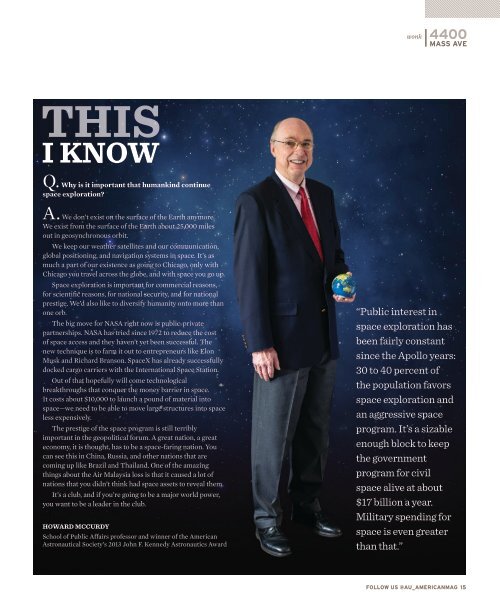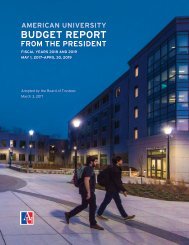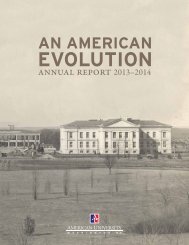American Magazine: August 2014
Create successful ePaper yourself
Turn your PDF publications into a flip-book with our unique Google optimized e-Paper software.
wonk<br />
Q. Why is it important that humankind continue<br />
space exploration?<br />
A. We don’t exist on the surface of the Earth anymore.<br />
We exist from the surface of the Earth about 25,000 miles<br />
out in geosynchronous orbit.<br />
We keep our weather satellites and our communication,<br />
global positioning, and navigation systems in space. It’s as<br />
much a part of our existence as going to Chicago, only with<br />
Chicago you travel across the globe, and with space you go up.<br />
Space exploration is important for commercial reasons,<br />
for scientific reasons, for national security, and for national<br />
prestige. We’d also like to diversify humanity onto more than<br />
one orb.<br />
The big move for NASA right now is public-private<br />
partnerships. NASA has tried since 1972 to reduce the cost<br />
of space access and they haven’t yet been successful. The<br />
new technique is to farm it out to entrepreneurs like Elon<br />
Musk and Richard Branson. SpaceX has already successfully<br />
docked cargo carriers with the International Space Station.<br />
Out of that hopefully will come technological<br />
breakthroughs that conquer the money barrier in space.<br />
It costs about $10,000 to launch a pound of material into<br />
space—we need to be able to move large structures into space<br />
less expensively.<br />
The prestige of the space program is still terribly<br />
important in the geopolitical forum. A great nation, a great<br />
economy, it is thought, has to be a space-faring nation. You<br />
can see this in China, Russia, and other nations that are<br />
coming up like Brazil and Thailand. One of the amazing<br />
things about the Air Malaysia loss is that it caused a lot of<br />
nations that you didn’t think had space assets to reveal them.<br />
It’s a club, and if you’re going to be a major world power,<br />
you want to be a leader in the club.<br />
HOWARD MCCURDY<br />
School of Public Affairs professor and winner of the <strong>American</strong><br />
Astronautical Society’s 2013 John F. Kennedy Astronautics Award<br />
“Public interest in<br />
space exploration has<br />
been fairly constant<br />
since the Apollo years:<br />
30 to 40 percent of<br />
the population favors<br />
space exploration and<br />
an aggressive space<br />
program. It’s a sizable<br />
enough block to keep<br />
the government<br />
program for civil<br />
space alive at about<br />
$17 billion a year.<br />
Military spending for<br />
space is even greater<br />
than that.”<br />
FOLLOW US @AU_AMERICANMAG 15

















